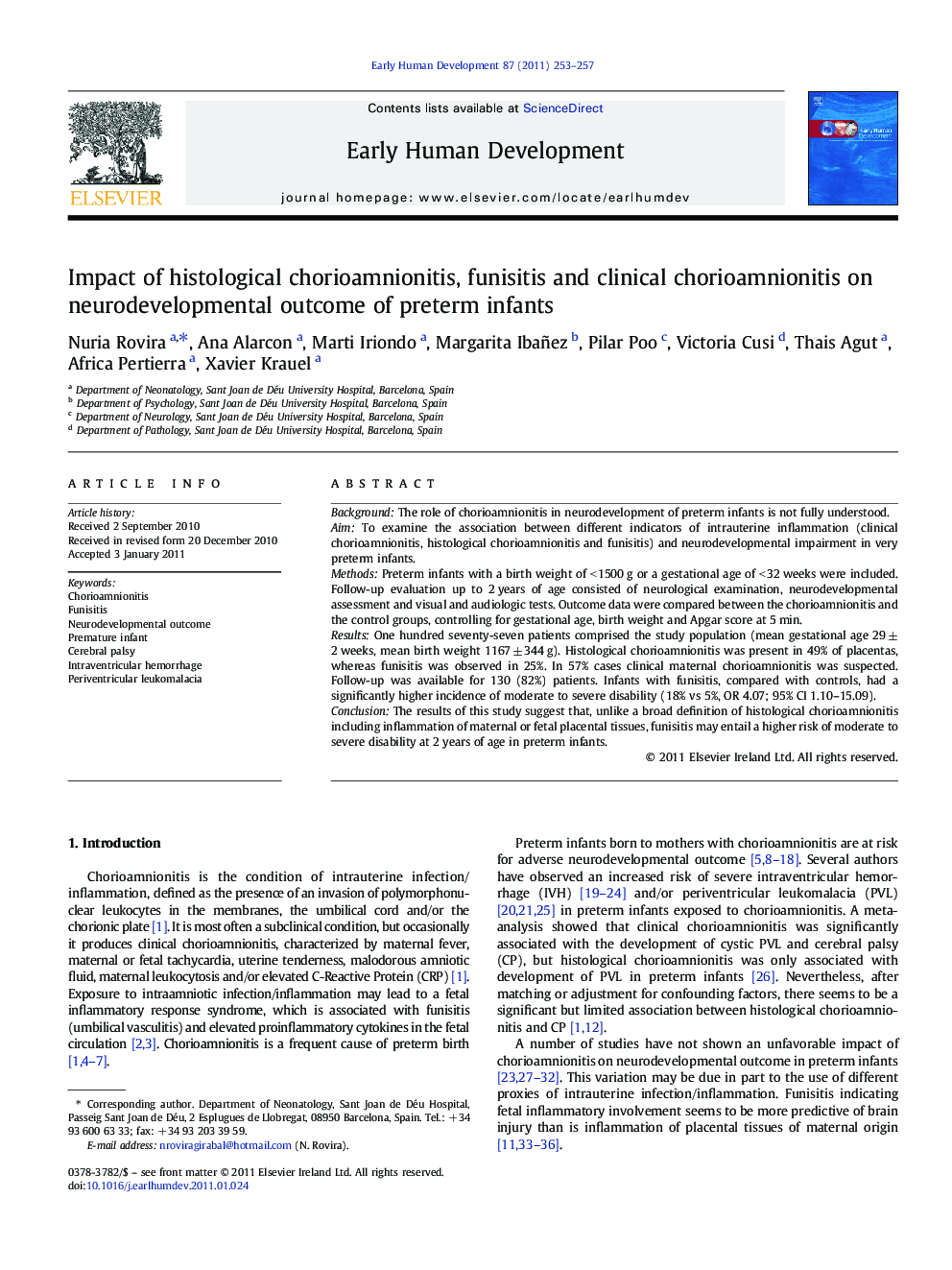| Article ID | Journal | Published Year | Pages | File Type |
|---|---|---|---|---|
| 6172203 | Early Human Development | 2011 | 5 Pages |
BackgroundThe role of chorioamnionitis in neurodevelopment of preterm infants is not fully understood.AimTo examine the association between different indicators of intrauterine inflammation (clinical chorioamnionitis, histological chorioamnionitis and funisitis) and neurodevelopmental impairment in very preterm infants.MethodsPreterm infants with a birth weight of < 1500 g or a gestational age of < 32 weeks were included. Follow-up evaluation up to 2 years of age consisted of neurological examination, neurodevelopmental assessment and visual and audiologic tests. Outcome data were compared between the chorioamnionitis and the control groups, controlling for gestational age, birth weight and Apgar score at 5 min.ResultsOne hundred seventy-seven patients comprised the study population (mean gestational age 29 ± 2 weeks, mean birth weight 1167 ± 344 g). Histological chorioamnionitis was present in 49% of placentas, whereas funisitis was observed in 25%. In 57% cases clinical maternal chorioamnionitis was suspected. Follow-up was available for 130 (82%) patients. Infants with funisitis, compared with controls, had a significantly higher incidence of moderate to severe disability (18% vs 5%, OR 4.07; 95% CI 1.10-15.09).ConclusionThe results of this study suggest that, unlike a broad definition of histological chorioamnionitis including inflammation of maternal or fetal placental tissues, funisitis may entail a higher risk of moderate to severe disability at 2 years of age in preterm infants.
